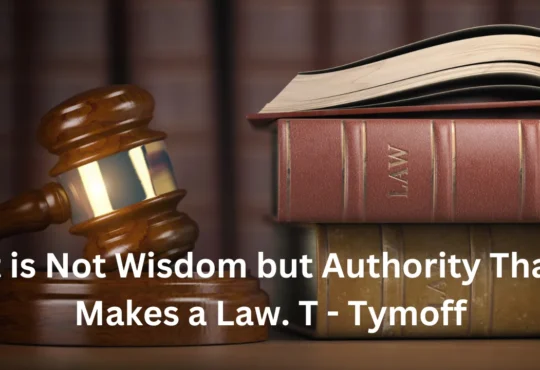Accidents happen when you least expect them. Unfortunately, victims are often left to deal with bodily injuries, making for an incredibly traumatic experience overall.
Naturally, the first thing people do (or ought to at least) is to have a healthcare professional immediately tend to their injuries. However, the medical expenses accrued can prove too much to bear, depending on the state of your injuries.
The one silver lining is the laws in place to help victims are financially compensated. That’s where personal injury lawyers come into the fray.
Continue reading to learn more about these professionals and what your personal injury lawyer does in a lawsuit.
An Overview of The Role of a Personal Injury Lawyer
A personal injury lawyer provides legal representation to victims of physical or psychological harm due to another party’s negligence, misconduct, or even intentional actions. They guide their clients through the lawsuit process, ensuring they’re duly compensated.
That said, personal injury attorneys are experienced in handling a wide range of cases, including:
- Car Accidents: These cases involve victims filing a claim against a party they deem responsible for causing a car collision.
- Slip and Fall Accidents: Part of premises liability, these cases involve a visitor to a property who incurs serious injuries and sues the property owner.
- Medical Malpractice: These cases involve patients who allege that inadequate medical treatment increased their pain and suffering.
- Defective Products: Falling under product liability, these cases involve plaintiffs who allege a defect in a product caused their injuries.
- Workplace Injuries: These cases are lodged by employees who have sustained injuries while on the job due to accidents or unsafe work conditions.
- Wrongful Death Lawsuits: These are cases where the injured party did not survive, and the bereaved are now filing a personal injury lawsuit on behalf of the deceased.
What Your Personal Injury Lawyer Does in a Lawsuit
Initial Case Evaluation
When you hire a personal injury lawyer, the first thing they will do is evaluate your case to determine whether it holds any water. This involves thoroughly reviewing all the details surrounding the accident and your injuries.
This initial assessment is crucial as it can help you have a clear picture of your current legal standing and what you can expect should you decide to move forward with the lawsuit.
Gathering Evidence
Evidence collection and analysis is a key skill any personal injury lawyer should have in their locker. This might include obtaining police reports, medical records, photographs, witness statements, and more.
The evidence they collect at this stage will form the basis of the lawsuit and is crucial in proving the defendant is liable for your injuries. It also helps the lawyer determine the compensation amount to seek since they’ll know the extent of your injuries and how they’ve impacted your life.
Working with Expert Witnesses
Thorough evidence collection can be incredibly time-consuming. However, a reputable lawyer should have the necessary experience and resources to collect supporting evidence efficiently. This will ensure that all relevant info is presented in court, thus increasing your chances of a favorable outcome.
As such, expert witnesses may be necessary to testify to specific aspects of your case. These witnesses can include medical experts or accident reconstruction specialists, among others. They will provide professional opinions and analysis to support your claim.
Interaction and Negotiation With Insurance Companies
In many personal injury cases, the insurance company will likely conduct its own investigation. If they find there’s no way of escaping liability, the responsible party or their insurance company will try to avoid going to trial by offering a settlement before the case goes to trial.
Settlement is often the preferred outcome as it saves time, money, and the draining efforts of a prolonged legal battle. This is where the negotiation skills of your personal injury lawyer come into play.
They will sit at the negotiation table on your behalf and try to secure a fair settlement. If the insurer denies the claim or lowballs you, the lawyer may take the issue to a court of law.
Escalating the Lawsuit
As referenced above, your personal injury lawyer will file a lawsuit if negotiations with the insurance company fail. They will draft and file a complaint with the appropriate court, serve the defendant with the lawsuit within the prescribed deadlines, and manage all subsequent legal documentation.
If the case proceeds to trial, your lawyer will argue the case before the jury, present the evidence, and strive for the best possible outcome.
Preparation for Trial
Your lawyer will prepare you for depositions and, if necessary, a trial. During a deposition, the plaintiff and defendant provide sworn evidence before the trial.
To prepare you for success, your lawyer will explain the court procedures, help you understand what to expect during the trial, and ensure you are fully confident when presenting your case before the judge and jury.
Represent You In Court
Once the trial date arrives, your lawyer will present your case to the court. So, ensure the one you hire has strong litigation skills and is familiar with the court procedures.
During trial proceedings, your lawyer will use their legal expertise to build a persuasive argument. They will present the evidence clearly and concisely, ensuring the jury understands the accident’s impact on your life. The lawyer will also challenge the opposing party’s arguments and evidence to weaken their case.
To Sum It Up
With medical expenses skyrocketing, having competent legal representation can be a lifeline. Personal injury cases can bring resolution to injury victims, helping them recover thanks to adequate financial compensation.
However, as you can see, a personal injury lawyer’s role extends beyond arguing your case in court. From investigating the facts of the case to preparing you for depositions, their work involves a multi-faceted approach that includes so much more.
So, now that you understand what your personal injury lawyer does in a lawsuit, don’t hesitate to reach out to one should you need legal assistance due to a personal injury.








